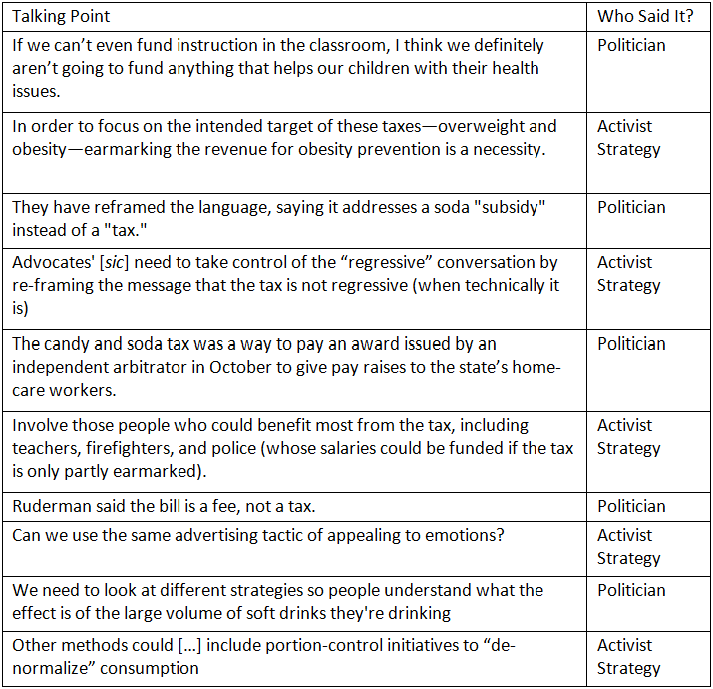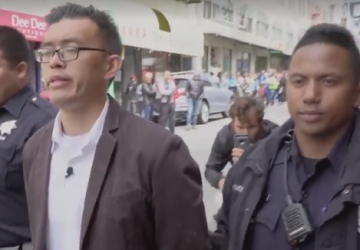 Today the Houston Chronicle brings us a profile on Texas State Representative Joe Farias’s vision for his misguided soda tax. It sounded familiar to us, with the usual mix of (evadable) promises to designate revenue for the children and misinformed hyperbole that links soft drinks with drugs.
Today the Houston Chronicle brings us a profile on Texas State Representative Joe Farias’s vision for his misguided soda tax. It sounded familiar to us, with the usual mix of (evadable) promises to designate revenue for the children and misinformed hyperbole that links soft drinks with drugs.
Indeed, this and other soda tax proposals are using the same advocacy playbook. We found a confidential report detailing it deep in the bowels of the Internet. It’s a report coming out of an activist meet-up in San Francisco. Among the attendees were staffers of the Rudd Center for Food Policy and Obesity (soda tax advocacy headquarters, not to be confused with the wine snobs funded by the same booze magnate), ex-FDA Commissioner David “Flavor is Addictive” Kessler, and an outfit called Changelab Solutions which provides public relations advice to the “public health” world.
The report details the numerous failures and stumbling blocks that soda tax activists have hit in the past two decades. Among the problems with a soda tax — there are many — is the fact that soda taxes disproportionately affect poorer consumers. Unable to deal with the reality of this situation, activists had the brilliant idea to “take control of the ‘regressive’ conversation by re-framing the message that the tax is not regressive (when technically it is).” Hopefully we won’t have to see how well a “re-framed message” pays for groceries.
We can create a fun little chart showing that activist politicians are simply parroting the talking points brought up in the activist conference. Try to guess which ones come from the playbook, and which ones are politicians.





